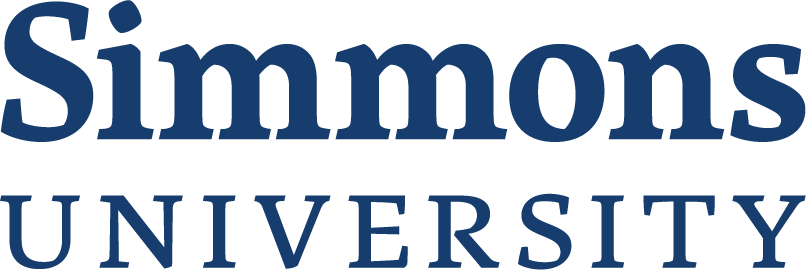Submissions Requested for SEQUITAR
Posted September 1, 2023
SEQUITUR Issue 10.1
Fall 2023
CFP: Threads
Deadline: September 29, 2023
The editors of SEQUITUR, a graduate student journal published by the Department of History of Art & Architecture at Boston University, invite current and recent graduate students to submit content on the theme of “Threads” for our Fall 2023 issue.
This issue’s theme is made to be pulled on: unraveling the myriad of ways in which the concepts of “threads” can be applied within the humanities. Just as thousands of threads can be woven into an elaborate tapestry, so too are human communities and societies made up of the threads of relationships that connect individuals to one another. Anthropologist Clifford Geertz drew on the connective power of threads when he theorized that “man is an animal suspended in webs of significance he himself has spun.” Links between people near and distant have always had a significant impact on artistic production and meaningful exchanges, which appear in storytelling through symbolic patterns, development of new forms, and gifting networks. Returning to a material framework, the fibers, design, and labor surrounding textiles are all intertwined in the numerous constructs of art and society. In spite of a thread’s material or figurative fragility, its integrative power grants it the ability to survive for generations as a testament to craft, visual culture, and the essential labors of creation and human connection.
For this issue of SEQUITUR, we seek emerging scholarship that explores ideas, expressions, and experiences of threads in art, architecture, and material culture from antiquity to the contemporary period. Possible subjects include, but are not limited to: materiality; fiber; fabric; textiles; looms; tapestry; weaving; stitching; twisting; spinning; knotting; dye; tint; shade; tone; fashion; pattern; design; repetition; composition; creation; striation; friction; structure; construction; tactility; synthesis; the natural; remnants; residue; shreds; scrap; roots; connections; family; friendship; ties; networks; community; lineage; genesis; memory; heritage; origins; provenance; sources; beginnings; ancestors; descendants; generational knowledge; memetics; gift giving; crafts; handmade; artisan; folk; decorative arts; labor; status; gender; age; domesticity; women’s work; housework; upcycling; utility; necessity; experimentation; processes; activism; survival; and resilience.
SEQUITUR welcomes submissions from graduate students in the disciplines of art history, architecture, archaeology, material culture, visual culture, literary studies, queer and gender studies, disability studies, memory studies, and environmental studies, among others. We encourage submissions that take advantage of the digital format of the journal.
Founded in 2014, SEQUITUR is an online biannual scholarly journal dedicated to addressing events, issues, and ideas in art and architectural history. SEQUITUR engages with and expands current conversations in the field by promoting the perspectives of graduate students from around the world. It seeks to contribute to existing scholarship by focusing on valuable but often overlooked parts of art and architectural history. Previous issues of SEQUITUR can be found here.
We invite full submissions in the following categories:
- Featured essays (1,500 words)
- Essays must be submitted in full by the deadline below to be considered for publication. Content should present original material that falls within the stipulated word limit. Please adhere to the formatting guidelines available here.
- Visual and creative essays
- We invite M.Arch. or M.F.A. students to showcase a selection of original work in or reproduced in a digital format. Submissions should consist of a 250-word artist statement and up to 10 works in .jpeg, html, or mp4 format. All image submissions must be numbered and captioned, and should be at least 500 DPI. We welcome various kinds of creative projects that take advantage of the online format of the journal.
We invite proposals (200 words max) for the following pieces:
- Exhibition reviews (500 words)
- Exhibitions currently on display or very recently closed are especially sought. We are especially interested in reviews of exhibitions in the Massachusetts and New England area.
- Book or exhibition catalogue reviews (500 words)
- Reviews of recently published books and catalogues are especially sought.
- Interviews (750 words)
- Preference may be given to those who can provide audio or video recordings of the interview. The author must include a full written transcript of the recording.
- Research spotlights (750 words)
- Short summaries of ongoing research written in a more casual format than a formal paper.
When submitting, please remember:
- All submissions and proposals are due September 29, 2023.
- Email all materials to [email protected].
- Include “SEQUITUR Fall 2023” and type of submission/proposal in the subject line, and your name, institution and program, year in program, and contact information in the body of the email.
- Text must be in the form of a Word document, and images should be sent as .jpeg files. While we welcome as many images as possible, at least ONE must be very high resolution and large format. All other creative media should be sent as weblinks, html, or mp4 files if submitting video or other multimedia work.
- Please remember to adhere to the formatting guidelines available here.
- Please attach a recent CV and a brief 50-word bio with submission.
Authors will be notified of the acceptance of their submission or proposal no later than October 13, 2023, for publication in January 2024. Please note that authors are responsible for obtaining all image copyright releases before publication.
If you have any questions, please do not hesitate to contact the SEQUITUR editors at [email protected].
